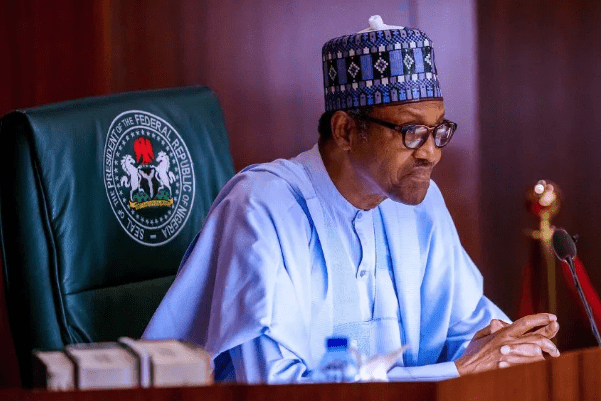
For the past nearly one and half years, Nigerian maritime sector operators did not hear about the re-establishment of a national shipping carrier by the present administration of President Muhammadu Buhari. The last time national shipping carrier was mentioned was July 2019 during the valedictory meeting of the Minister of Transportation, Rotimi Amaechi, with maritime industry stakeholders in Lagos.
At the meeting the out-going transportation minister in the first tenure of President Buhari’s administration, blamed maritime stakeholders for the failure of the government’s efforts to establish another national shipping carrier for the country. The stakeholders did not waste time in giving it back to him, telling him point blank that the government was not serious, as it lacked the political will to establish a shipping carrier for the country. They told the minister that establishing a national shipping carrier went beyond setting up committees. After that meeting, nothing was heard about the issue again.
In fact, many thought the issue had been forgotten. Even with the reappointment of Amaechi as transport minister, nothing has been said or heard about the national carrier project until recently.
Last week, it was in the news that the National Fleet Implementation Committee, which was thought to have died with the project, paid the Director-General of the Nigerian Maritime Administration and Safety Agency (NIMASA), Bashir Jamoh, a courtesy visit, during which the NIMASA DG said the desire for a Nigerian shipping line was gradually being achieved. He said this after re-reaffirming the agency’s commitment to the establishment of a strong and sustainable national fleet.
Curiously, Jamoh’s remarks strikes a chord. While industry observers and stakeholders had thought the idea of a national shipping line by this administration had died a natural death, Jamoh’s said it was gradually being actualized. But how this is being achieved is yet to be seen.
However, that the idea is still alive is somewhat exhilarating. Even though, one has not heard categorically from the Minister of Transportation or any other government official concerning the national shipping line, one is safe to assume that the committee has the mandate of the government to restart the project. It is therefore hoped that this time around, the committee is not meeting with stakeholders just to recount the benefits of a national shipping carrier, as was seen during the courtesy visit to NIMASA. Rather, the renewed activities of the implementation committee should signal the commencement of real and spirited efforts to float a shipping line for the country.
To do this, a lot of political will and determination are needed from the federal government. It must come out with a policy which makes the existence of a national shipping fleet inevitable. If Ethiopia, a landlocked country has vessels that carry its imports and exports, it is difficult to fathom why Nigeria cannot. Ethiopia is known to have achieved this because of a strong political will that every Ethiopian cargo must be carried on an Ethiopian vessel.
Government should also be ready to address the well-known inherent challenges facing indigenous ship owners, and also to lay a proper foundation for the smooth establishment and operation of the national carrier.
Whatever model or arrangement that is adopted for establishing the national carrier, government should be ready to assist indigenous shipping operators.
The Minister of Transportation, Rotimi Amaechi, should remember his lamentation of inability to pull through the national carrier project before the expiration of his first tenure as the transport minister in July last year. Now, he has another chance. He is expected to pull out all the stops to ensure the success of the scheme. Time is of essence, and the sooner real and concrete actions are taken towards the actualization of the national carrier project, the better.
At this period of serious economic downturn when every available foreign exchange should be conserved, Nigeria should not continue to open its doors for capital flight as a result of inability to carry its cargoes. There should be a determination by government to end capital flight and massive loss of foreign exchange as a result of inability to take the nation’s crude to the world market. In other words, there should be an end to the heavy loss of freight component of the nation’s oil trade by ensuring that Nigeria’s crude is carried by Nigerian vessels.
If the efforts fail again during the second tenure of President Muhammadu Buhari, it will surely go down in history as a government that came up with the idea of re-establishing Nigeria’s liquidated national shipping line, only for the whole thing to end up as a wild goose chase or a grand deception.